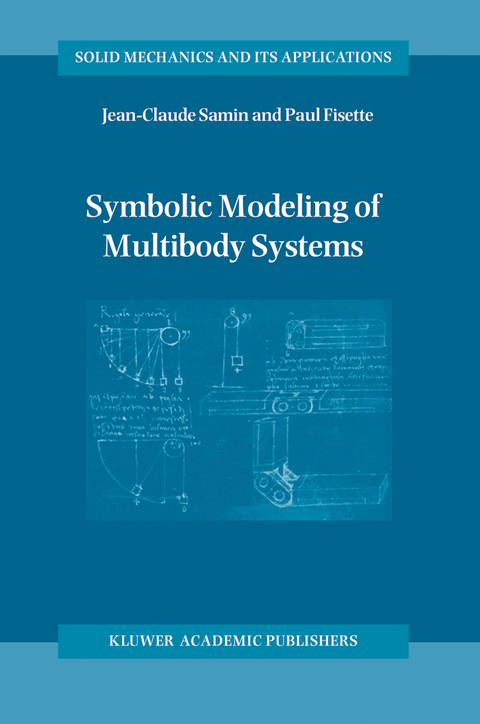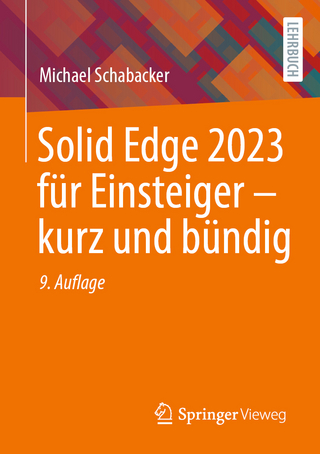
Symbolic Modeling of Multibody Systems
Seiten
2003
Springer-Verlag New York Inc.
978-1-4020-1629-5 (ISBN)
Springer-Verlag New York Inc.
978-1-4020-1629-5 (ISBN)
Modeling and analysing multibody systems require a comprehensive understanding of the kinematics and dynamics of rigid bodies. This book reviews the relevant fundamental principles and illustrates them in conformity with the multibody formalisms that follow.
Modeling and analysing multibody systems require a comprehensive understanding of the kinematics and dynamics of rigid bodies. In this volume, the relevant fundamental principles are first reviewed in detail and illustrated in conformity with the multibody formalisms that follow. Whatever the kind of system (tree-like structures, closed-loop mechanisms, systems containing flexible beams or involving tire/ground contact, wheel/rail contact, etc), these multibody formalisms have a common feature in the proposed approach, viz, the symbolic generation of most of the ingredients needed to set up the model.
The symbolic approach chosen, specially dedicated to multibody systems, affords various advantages: it leads to a simplification of the theoretical formulation of models, a considerable reduction in the size of generated equations and hence in resulting computing time, and also enhanced portability of the multibody models towards other specific environments. Moreover, the generation of multibody models as symbolic toolboxes proves to be an excellent pedagogical medium in teaching mechanics.
Modeling and analysing multibody systems require a comprehensive understanding of the kinematics and dynamics of rigid bodies. In this volume, the relevant fundamental principles are first reviewed in detail and illustrated in conformity with the multibody formalisms that follow. Whatever the kind of system (tree-like structures, closed-loop mechanisms, systems containing flexible beams or involving tire/ground contact, wheel/rail contact, etc), these multibody formalisms have a common feature in the proposed approach, viz, the symbolic generation of most of the ingredients needed to set up the model.
The symbolic approach chosen, specially dedicated to multibody systems, affords various advantages: it leads to a simplification of the theoretical formulation of models, a considerable reduction in the size of generated equations and hence in resulting computing time, and also enhanced portability of the multibody models towards other specific environments. Moreover, the generation of multibody models as symbolic toolboxes proves to be an excellent pedagogical medium in teaching mechanics.
I Theory.- 1 Fundamental Mechanics.- 2 Dynamics of rigid bodies.- 3 Tree-like multibody structures.- 4 Complex multibody structures.- 5 Symbolic generation.- II Special topics.- 6 Road vehicles: wheel/ground model.- 7 Railway vehicles: wheel/rail model.- 8 Mechanisms: cam/follower model.- 9 Multibody systems with flexible beams.- 10 Time integration of flexible MBS.- III Tutorial.- 11 Introduction.- 12 Problems.
| Erscheint lt. Verlag | 30.11.2003 |
|---|---|
| Reihe/Serie | Solid Mechanics and Its Applications ; 112 |
| Zusatzinfo | XII, 476 p. |
| Verlagsort | New York, NY |
| Sprache | englisch |
| Maße | 155 x 235 mm |
| Themenwelt | Technik ► Maschinenbau |
| ISBN-10 | 1-4020-1629-8 / 1402016298 |
| ISBN-13 | 978-1-4020-1629-5 / 9781402016295 |
| Zustand | Neuware |
| Haben Sie eine Frage zum Produkt? |
Mehr entdecken
aus dem Bereich
aus dem Bereich
Buch | Softcover (2023)
Springer Vieweg (Verlag)
24,99 €
Normung, Berechnung, Gestaltung
Buch | Softcover (2023)
Springer Vieweg (Verlag)
39,99 €
Buch | Softcover (2023)
Springer Vieweg (Verlag)
24,99 €


